Find Help
More Items From Ergsy search
-
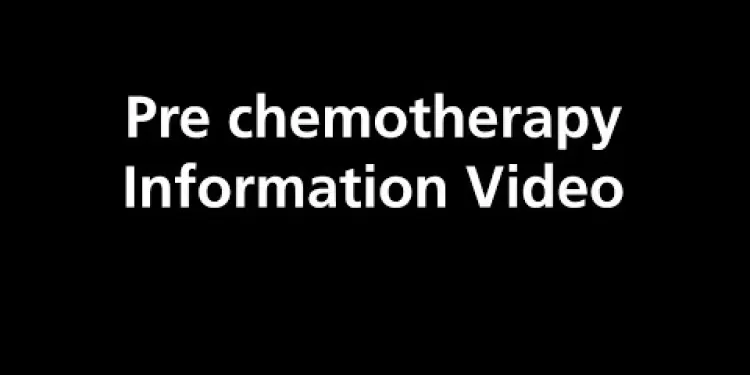
Pre chemotherapy Information Video
Relevance: 100%
-
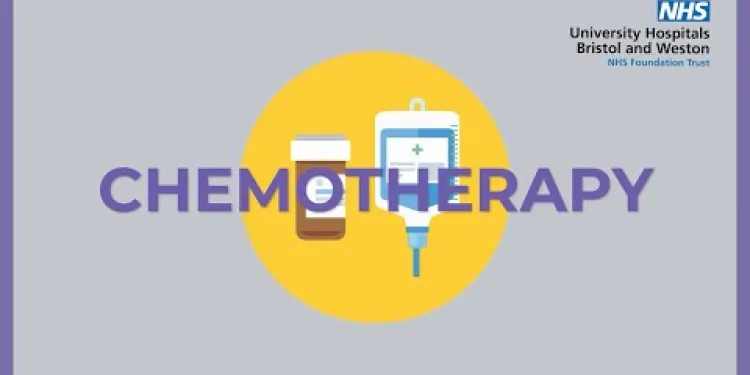
Chemotherapy
Relevance: 39%
-
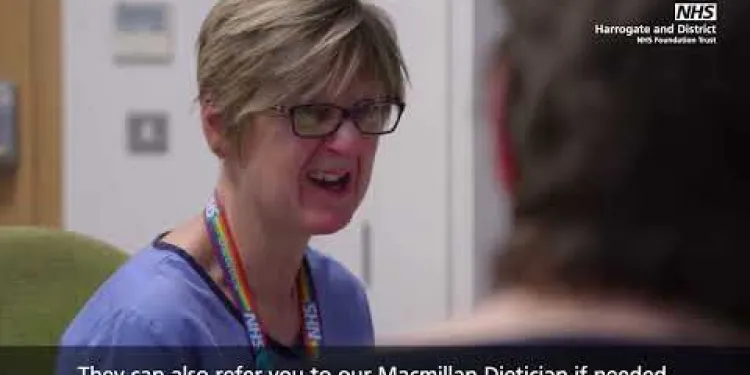
Information for all cancer patients receiving Chemotherapy or Targeted Therapy at HDFT.
Relevance: 36%
-
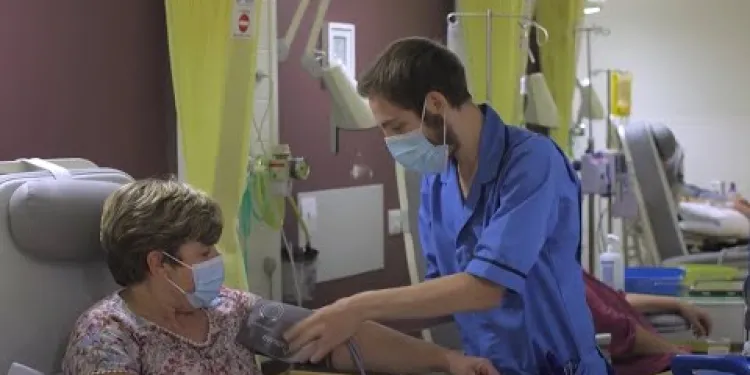
Chemotherapy - the patient journey
Relevance: 34%
-
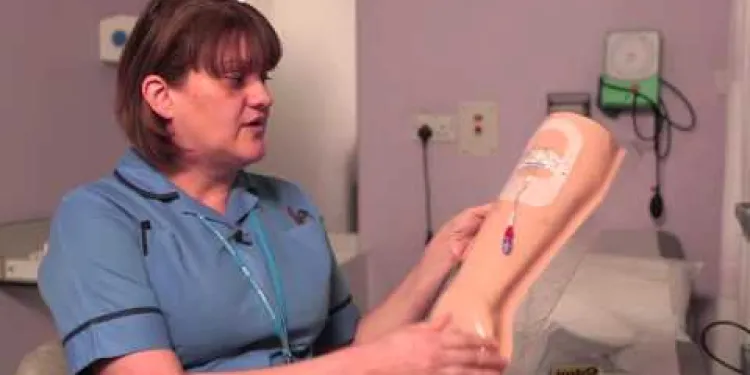
Chemotherapy - The Queen's Centre
Relevance: 34%
-

Is Abiraterone a chemotherapy drug?
Relevance: 33%
-
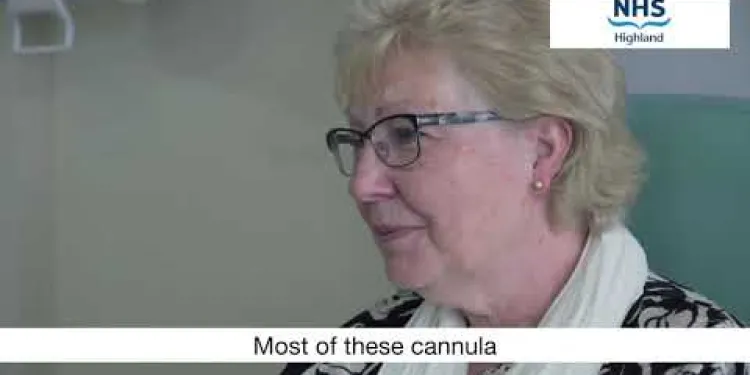
Introduction to Chemotherapy, NHS Highland
Relevance: 32%
-
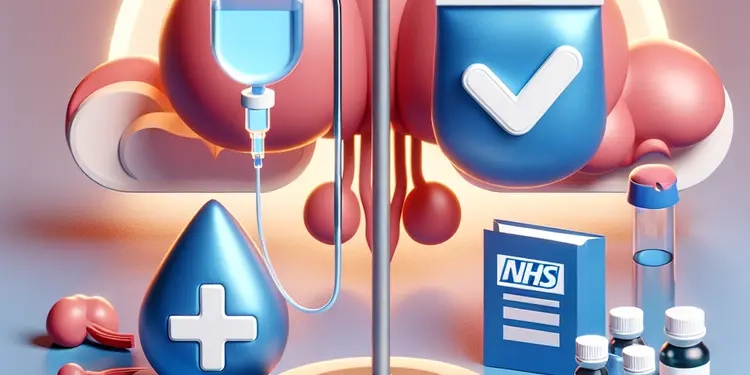
When is chemotherapy used for prostate cancer?
Relevance: 32%
-
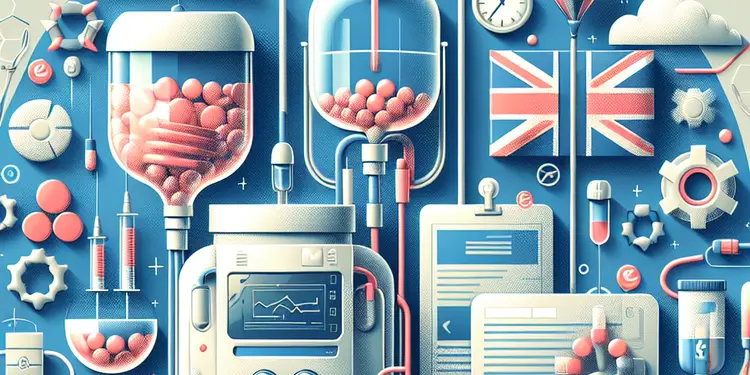
Is Paillon treatment a form of chemotherapy?
Relevance: 31%
-

NHS STI (Sexually Transmitted Infections) Information Video
Relevance: 31%
-
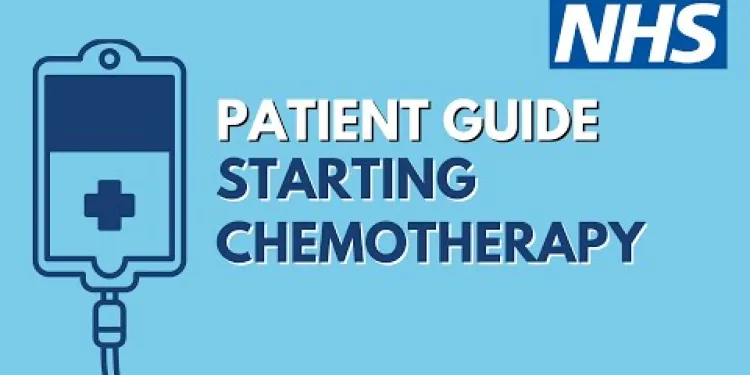
Starting Chemotherapy
Relevance: 30%
-
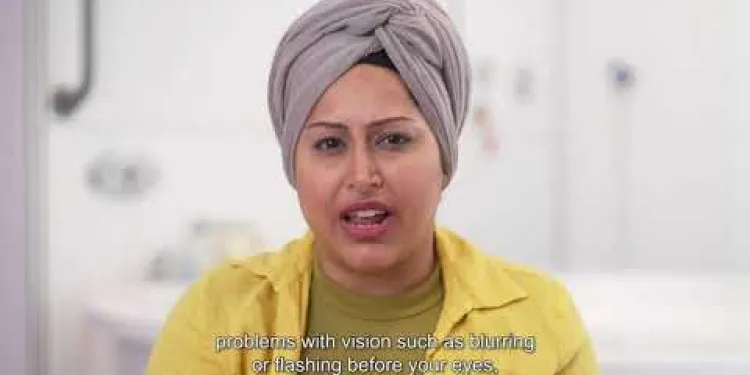
Pre eclampsia - NHS Maternity Safety Information
Relevance: 29%
-
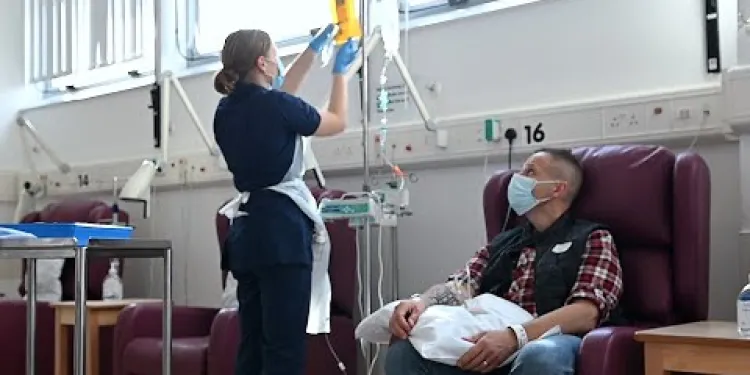
Having chemotherapy and other treatments in the Day Treatment Unit
Relevance: 29%
-
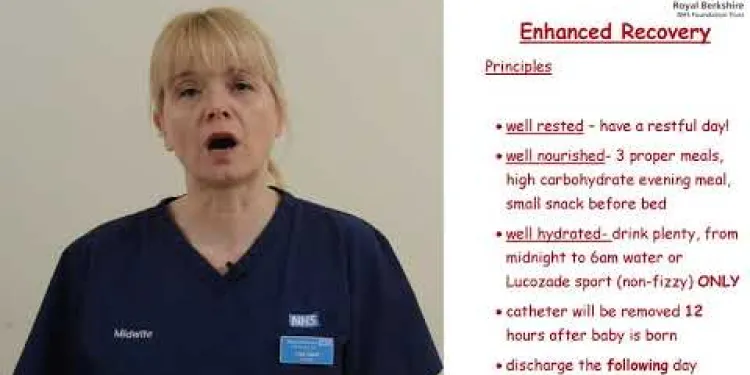
Pre operative Information for Planned Caesarean Birth
Relevance: 29%
-
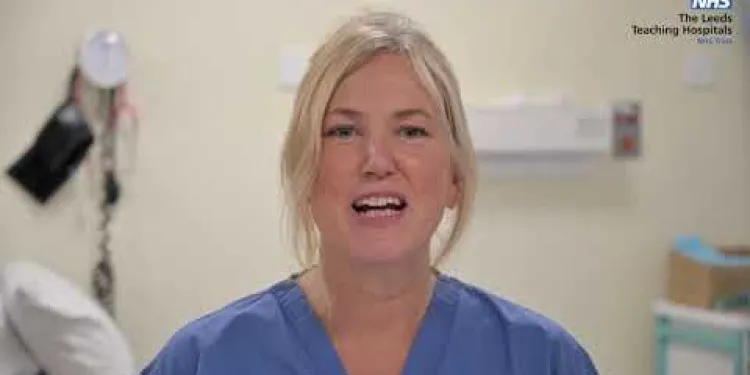
Patient Information Video - Leeds Stress Echocardiography Service
Relevance: 29%
-
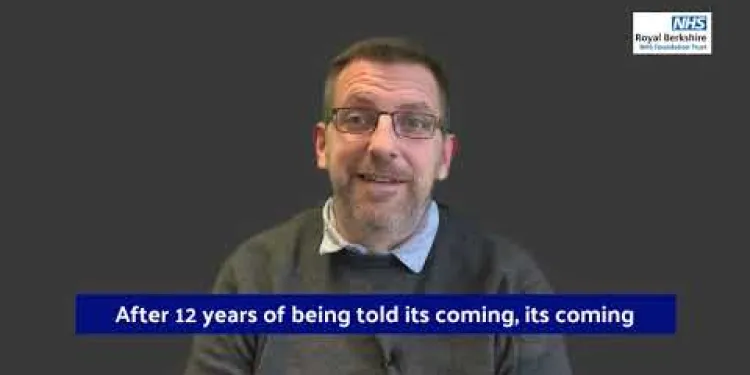
Peritoneal Dialysis - Information Video
Relevance: 29%
-

Is the video quality of a Ring Doorbell Camera good?
Relevance: 28%
-
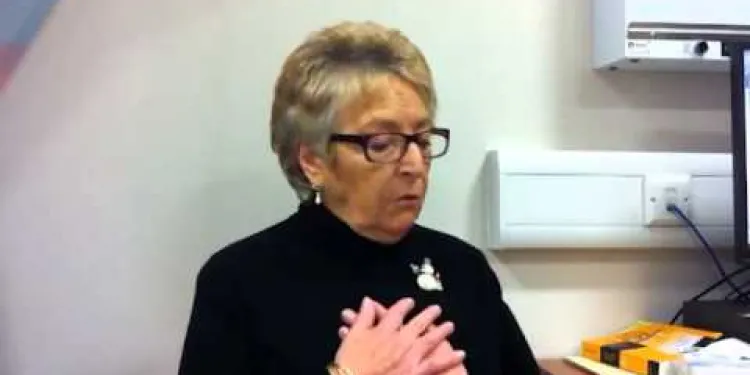
Neuroendocrine tumour patient video
Relevance: 27%
-
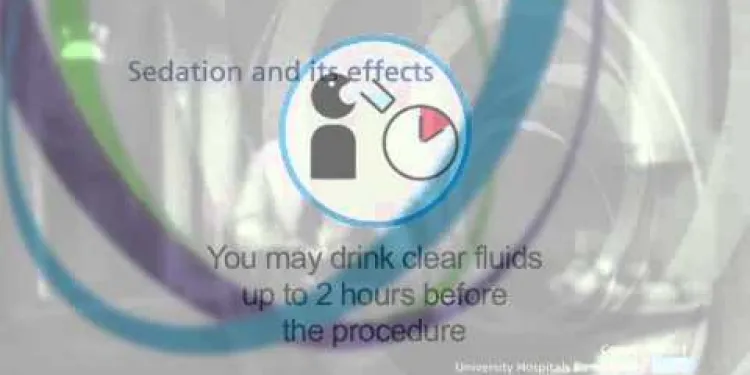
Endoscopy video preview
Relevance: 25%
-
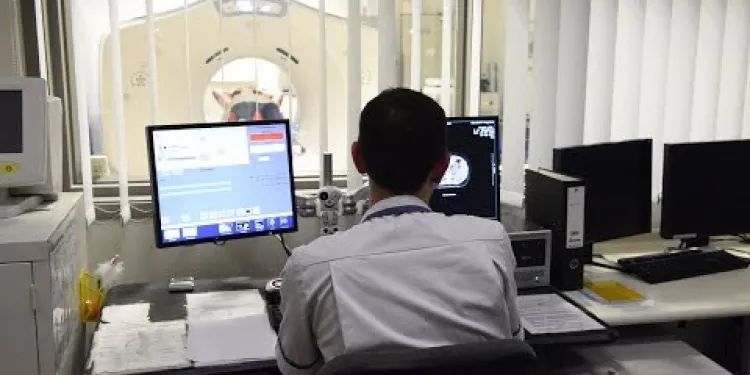
Having radiotherapy for breast cancer - 3 Videos
Relevance: 24%
-

MSK Lower Back Pain information video
Relevance: 24%
-

The Family Court without a Lawyer - Video 1 of 3
Relevance: 24%
-
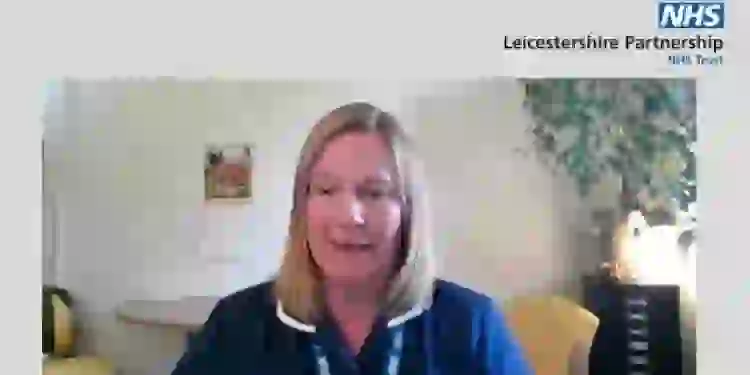
Needle phobia - Top tips video
Relevance: 23%
-

The Family Court without a Lawyer - Video 3 of 3
Relevance: 22%
-

The Family Court without a Lawyer - Video 2 of 3
Relevance: 22%
-
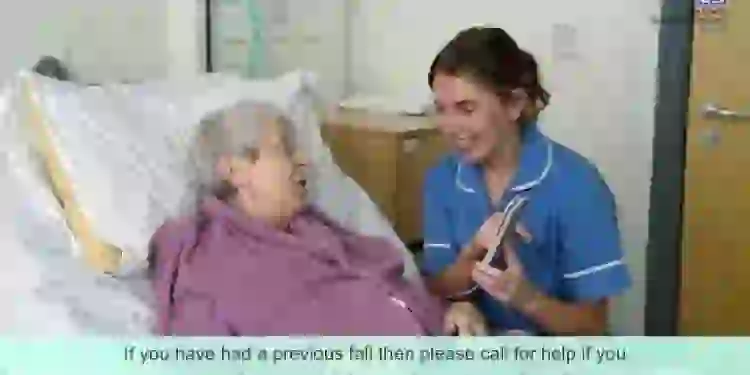
Falls Prevention video for patients attending hospital
Relevance: 21%
-
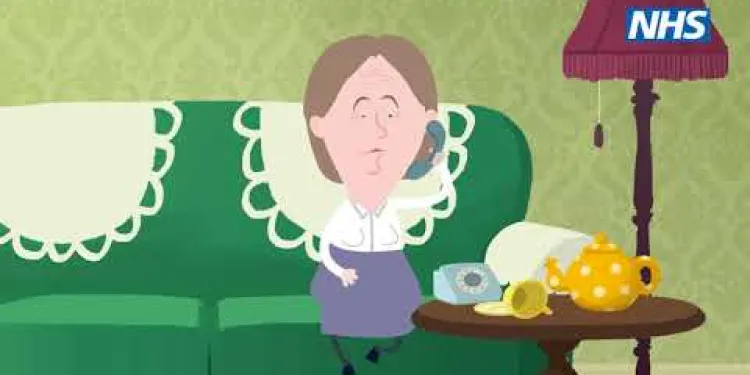
West Midlands LEHN Animated Video on Eye Health
Relevance: 21%
-

Can I find official information on Nimbus and Stratus?
Relevance: 18%
-

Patient video: What to expect when having a bone scan
Relevance: 17%
-

Can I access prostate cancer information online through the NHS?
Relevance: 17%
-

Where can I find more information about Paillon treatment?
Relevance: 17%
-

How can I find detailed information about these changes once announced?
Relevance: 16%
-
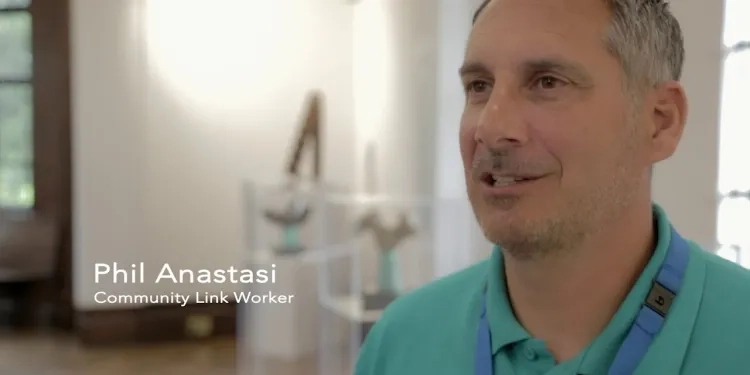
Introducing Social Prescribing - short video
Relevance: 16%
-

Do I need to inform HMRC about the death?
Relevance: 15%
-

Are companies required to inform me if my data is breached?
Relevance: 15%
-

Where can I find the latest information on the EV grant?
Relevance: 15%
-

How are consumers informed about a product recall?
Relevance: 15%
-

Why is it important to update my account recovery information?
Relevance: 15%
-

How are customers being informed about their eligibility for refunds?
Relevance: 15%
-
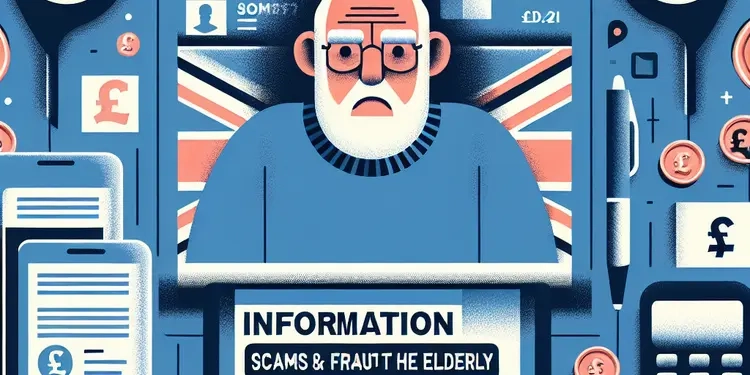
Information on scams and fraud that targets the elderly.
Relevance: 14%
Pre Chemotherapy Information Video
Introduction
Starting chemotherapy can be a daunting experience. To help patients in the United Kingdom understand what to expect, many NHS Trusts and cancer support organisations provide pre-chemotherapy information videos. These videos aim to prepare patients mentally and physically by offering detailed information about the treatment process, its side effects, and tips for managing them.
Purpose of Pre Chemotherapy Information Videos
The primary purpose of these informational videos is to educate and empower patients facing chemotherapy. They serve to demystify the treatment process, reduce anxiety, and provide practical advice. Additionally, they offer a visual and auditory learning experience, which could be more relatable and easier to digest compared to written materials.
What to Expect During Chemotherapy
These videos often start by explaining what chemotherapy is— a treatment that uses drugs to kill cancer cells. They detail the different types of chemotherapy, what to expect during each session, and how the treatment schedule is determined. Viewers can learn about the procedures carried out before, during, and after each treatment, including blood tests and infusions.
Understanding Side Effects
Patients frequently worry about the side effects of chemotherapy. Pre chemotherapy videos address these concerns by highlighting common side effects such as fatigue, nausea, hair loss, and an increased risk of infection. More importantly, they provide guidance on how to manage these side effects, which can significantly improve the quality of life during treatment.
Support Services
Support is crucial during chemotherapy. The videos inform viewers about the various support services available within the NHS and local communities. This includes information on how to access oncology nurses, counselling services, support groups, and financial aid. Knowledge of these resources can provide invaluable assistance throughout the treatment journey.
Conclusion
Pre chemotherapy information videos play a vital role in helping patients in the UK prepare for and manage their treatment. By offering comprehensive, easy-to-understand information, these videos help to lower anxiety levels and equip patients with the knowledge they need to face chemotherapy with confidence.
Pre Chemotherapy Information Video
Introduction
Starting chemotherapy can feel scary. In the UK, many NHS Trusts and cancer support groups show videos to help people understand chemotherapy. These videos help you get ready by telling you what will happen, the side effects, and how to handle them.
Purpose of Pre Chemotherapy Information Videos
The main goal of these videos is to teach and help people who are about to start chemotherapy. They make the treatment less confusing, help you worry less, and give useful advice. Watching a video can sometimes be easier than reading because you can see and hear the information.
What to Expect During Chemotherapy
The videos usually start by explaining chemotherapy. Chemotherapy uses medicine to fight cancer cells. The videos talk about the different types of chemotherapy and what happens when you go for treatment. You will see what happens before, during, and after, like blood tests and getting medicine through a drip.
Understanding Side Effects
Many people worry about the side effects of chemotherapy. The videos talk about common side effects like feeling very tired, feeling sick, losing hair, and getting infections more easily. They also give tips on how to deal with these effects so you can feel better during treatment.
Support Services
Having support while you go through chemotherapy is very important. The videos tell you about the help you can get from the NHS and in your area. This includes talking to cancer nurses, counselling, support groups, and help with money. Knowing about these helps can make your treatment journey easier.
Conclusion
Pre chemotherapy videos are really important for helping people in the UK get ready for treatment. They give clear and easy information to help you feel less worried and more prepared for chemotherapy.
Frequently Asked Questions
What should I expect during my first chemotherapy session?
Your first chemotherapy session will include a consultation with your oncologist, a review of your treatment plan, and the administration of your first dose of chemotherapy. The process may take several hours, so bring something to keep you occupied.
Will chemotherapy affect my daily routine?
Chemotherapy can affect your daily routine due to side effects such as fatigue, nausea, and lowered immunity. It's important to pace yourself and prioritise rest and self-care.
How should I prepare for chemotherapy?
Preparation for chemotherapy includes arranging transportation, packing a bag with essentials like snacks and entertainment, and ensuring you have support at home. You may also need to undergo blood tests and follow specific dietary guidelines.
Can I continue working during chemotherapy?
Many people are able to work during chemotherapy, but it depends on the nature of your job and how you respond to treatment. Discuss your work schedule with your employer and oncologist to make necessary adjustments.
What should I eat before and after chemotherapy?
Prioritise a balanced diet rich in fruits, vegetables, lean proteins, and whole grains. Eat smaller, frequent meals and stay hydrated. Your oncologist or dietitian can offer personalised dietary advice.
Will chemotherapy impact my fertility?
Chemotherapy can affect fertility, so it's important to discuss fertility preservation options with your doctor before starting treatment if you plan to have children in the future.
How will I know if chemotherapy is working?
Your oncologist will monitor your response to chemotherapy through regular tests and scans. The effectiveness of the treatment will be assessed by evaluating changes in tumour size and other markers of disease.
Are there any side effects of chemotherapy?
Common side effects of chemotherapy include nausea, fatigue, hair loss, and increased risk of infection. Your healthcare team will provide medications and strategies to manage these side effects.
Can I drive myself to and from chemotherapy sessions?
It's recommended to have someone drive you to and from your chemotherapy sessions, at least for the first few treatments, until you know how you'll react to the medication.
What should I bring to my chemotherapy sessions?
Bring comfort items such as a blanket, pillow, snacks, water, entertainment (books, tablets, headphones), and any medications you might need. Also, bring identification and any paperwork requested by your clinic.
Is there financial support available for those undergoing chemotherapy?
Yes, there are various forms of financial support available, including government benefits and charitable grants. Contact your hospital's social worker or a local cancer support organisation for more information.
Can I exercise during chemotherapy treatment?
Light to moderate exercise can be beneficial during chemotherapy, as it can help reduce fatigue and improve mood. Always consult your oncologist before starting or continuing an exercise routine.
How can I manage chemotherapy-related nausea?
Your doctor can prescribe anti-nausea medications. Eating small, bland meals and staying hydrated can also help. Avoid strong smells and fried or greasy foods.
What should I do if I experience side effects at home?
Report any side effects to your healthcare team, as they can provide advice and medications to help manage them. Keep a diary of your symptoms to discuss at your next appointment.
Can I travel during chemotherapy?
Travel may be possible depending on your treatment schedule and how you're feeling. Discuss any travel plans with your oncologist to ensure it's safe and to arrange necessary medications and care while away.
What happens in my first chemo session?
Your first chemo session might make you feel nervous. Here is what will happen:
1. **Talk to the Nurse**: You will meet a nurse. The nurse will answer your questions.
2. **Get Comfortable**: You will sit in a comfy chair. You can bring a book, music, or a friend to help you relax.
3. **Start Treatment**: The nurse will put a needle in your arm. The medicine will go into your body. It might take a few hours.
4. **Feelings During Treatment**: You might feel sleepy or sick. Tell the nurse if you feel this way.
5. **After Treatment**: You might be tired. Rest and drink water when you get home.
**Tips**: Ask a friend or family member to come with you. Bringing a blanket or pillow can help you feel cozy.
Your first chemo session means a meeting with your cancer doctor, talking about your treatment plan, and getting your first medicine for cancer. This can take a few hours, so bring something fun or interesting to do.
Will chemotherapy change my daily life?
Chemotherapy is a treatment for cancer. It might make your body feel different.
Some people feel tired and might want to rest more. Other people might feel sick in their tummy.
It's good to have a simple plan for your day. This can help you feel in control.
Talking to someone who knows about cancer can help too. They can give you ideas on how to feel better.
Remember, it's okay to ask for help from family or friends.
Chemo can change your daily life. You might feel very tired, sick, or get sick more easily. It's important to take breaks, rest, and take care of yourself.
Getting Ready for Chemotherapy
Getting ready for chemotherapy means you should set up a way to get there and back. Pack a bag with important things like snacks and things to do, like a book or game. Make sure someone at home can help you. You might also need to have blood tests and eat certain foods before your treatment.
Can I keep working while getting chemo?
Chemo is strong medicine that helps fight cancer. Some people feel tired or sick when they get chemo. It's okay to ask your doctor if you can work. Tell them about how you feel. Here are some tips that might help: - Work part-time if you can. - Talk to your boss about taking breaks. - Use a calendar to keep track of your chemo days. - Ask family or friends for help. Remember, it’s important to rest when you need to.Some people can work while having chemotherapy treatment. It depends on your job and how the treatment makes you feel. Talk to your boss and doctor to plan your work and treatment times.
What should I eat before and after chemotherapy?
Chemotherapy is a medicine that helps to treat cancer. Eating the right food can help you feel better.
Before Chemotherapy:
- Eat small, healthy meals.
- Try foods like chicken, rice, and vegetables.
- Drink water to stay hydrated.
After Chemotherapy:
- Eat small meals throughout the day.
- Try foods like soup, bread, or bananas.
- Drink water or juice.
Helpful Tips:
- Ask a friend or family member to help you with meals.
- Use tools like a calendar to plan your meals.
Eat healthy foods. This means lots of fruits, veggies, lean meats, and whole grains. Eat small meals often. Make sure to drink plenty of water. Your cancer doctor or diet expert can give you special help with what to eat.
Will chemotherapy affect my ability to have children?
Chemotherapy is a medicine that helps fight cancer. But sometimes, it can make it harder to have children later. This is called affecting fertility. It means having a baby might be more difficult after treatment.
If you are worried, talk to your doctor. They can tell you how your treatment might affect you. They can also tell you about other choices to help keep your chances of having a family in the future.
Using pictures or writing things down can help you understand better. It is okay to ask lots of questions until you feel comfortable.
Chemotherapy, which is a type of cancer treatment, can make it harder to have babies later. It is a good idea to talk with your doctor about how to save eggs or sperm before starting chemotherapy. This will help if you want to have children in the future.
How can I tell if chemotherapy is helping?
Chemotherapy is a treatment to help fight cancer. Here are simple ways to know if it is working:
- Feel Better: You might start to feel better or have less pain.
- Doctor Tests: Doctors can do tests to check if the cancer is getting smaller.
- Talk to Your Doctor: It's important to ask your doctor about how the treatment is going.
If you need help understanding, ask someone you trust. You can also use pictures or apps to help explain.
Your cancer doctor will check how well your treatment is working. They will do this by doing regular tests and scans. They look to see if the tumour is getting smaller and if there are changes in other signs of the illness.
Does chemotherapy have any side effects?
When you have chemotherapy, you might feel sick (nausea), very tired (fatigue), lose your hair, or get sick easily (increased risk of infection). Your doctors and nurses will give you medicine and ideas to help with these problems.
Can I drive myself to and from chemo treatments?
Driving to and from chemo treatments might not be a good idea. Chemo can make you feel tired and unwell. It might not be safe to drive.
It's a good idea to ask someone to drive you. A friend or family member can help. You can also use a taxi or a car service.
If you have no one to help, tell your nurse or doctor. They can suggest helpful services. Plan ahead to make sure you have a safe way to get to and from your chemo treatments.
It’s a good idea to ask someone to drive you to and from your chemo treatments. This is important, especially for your first few treatments. You need to see how your body reacts to the medicine.
What should I take to my chemo treatment?
Chemotherapy, or 'chemo', is a treatment for cancer. If you need to go to a chemo session, here are some things you might want to take with you:
- Snacks and Drinks: Take some food and water. It can help you feel better.
- Comfy Clothes: Wear loose and cozy clothes. You might be there for a while.
- Blanket or Pillow: Bring a small blanket or pillow to stay warm and comfy.
- Something to Do: Books, puzzles, or music can help pass the time.
- List of Medicines: Have a list of medicines you take. Doctors might ask about it.
- Your ID and Insurance Card: Keep them handy if needed.
Talk to your doctor or nurse if you have questions. They can help you feel ready for your session.
Bring things that make you feel happy and comfy. This can be a soft blanket, a nice pillow, some snacks, and water to drink. You might also want to bring some fun things like books, a tablet, or headphones to listen to music. Don't forget any medicines you need to take. Also, bring your ID card and any important papers the clinic asked for.
If it's hard to remember everything, write a list and check it before you leave. Ask someone you trust to help you pack if you need. There are apps on phones that can make lists for you too.
Can you get money help if you need chemotherapy?
Chemotherapy is a type of medicine to help treat cancer. It can cost a lot of money and make it hard to work.
If you or someone you know is having chemotherapy, there might be money help you can get. Here are some things you can do:
- Ask your doctor or nurse about any money programs.
- Look for local charities that help people with cancer.
- Check if the government has any support for people who are sick.
Remember, asking for help is okay. There are people and places that want to support you.
Yes, there is help with money you can get. This includes help from the government and from charities. You can talk to a social worker at the hospital or a local cancer support group to learn more.
Can I do exercise while having chemo treatment?
Doing a little bit of exercise can help you feel better when you have chemotherapy. It can make you less tired and happier. But remember, always talk to your doctor before you start or keep exercising. You can try using tools like a Fitbit to keep track of your activity, or join a gentle exercise class like yoga to help you stay active.
How can I help with feeling sick from cancer medicine?
Cancer medicine can make you feel sick. This is called nausea. Here are some ways to help:
- Eat small meals often. Try not to eat big meals.
- Drink lots of water. Sip slowly.
- Rest when you feel tired.
- Avoid strong smells, like perfume or cooking.
- Ask your doctor for medicine to stop feeling sick.
Talk to a doctor if you feel very sick.
Using tools like picture cards or a planner can help you remember what to do. Getting support from family or friends can also be helpful.
Your doctor can give you medicine to stop feeling sick. Eating small, plain meals and drinking lots of water can help too. Stay away from strong smells and fried or oily foods.
What should I do if I feel bad at home?
If you feel sick or strange after taking medicine:
- Tell someone you trust, like a family member or friend.
- Call a doctor or nurse to ask what to do.
- If it is really bad, like trouble breathing, call emergency services or go to the hospital.
Tools that might help:
- Have a phone nearby to call for help.
- Keep important phone numbers written down and easy to find.
If you feel any bad effects, tell your doctor or nurse. They can help you and give you medicine to feel better. Write down how you feel in a notebook. Show it to your doctor or nurse when you see them next time.
Can I go on a trip if I am getting chemo?
You might be able to travel, but it depends on your treatment plan and how you are feeling. Talk to your cancer doctor about your travel plans. It's important to make sure it's safe for you to go and to organize any medicines or care you might need while you are away.
Useful Links
This website offers general information and is not a substitute for professional advice.
Always seek guidance from qualified professionals.
If you have any medical concerns or need urgent help, contact a healthcare professional or emergency services immediately.
Some of this content was generated with AI assistance. We’ve done our best to keep it accurate, helpful, and human-friendly.
- Ergsy carfully checks the information in the videos we provide here.
- Videos shown by Youtube after a video has completed, have NOT been reviewed by ERGSY.
- To view, click the arrow in centre of video.
- Most of the videos you find here will have subtitles and/or closed captions available.
- You may need to turn these on, and choose your preferred language.
- Go to the video you'd like to watch.
- If closed captions (CC) are available, settings will be visible on the bottom right of the video player.
- To turn on Captions, click settings .
- To turn off Captions, click settings again.
More Items From Ergsy search
-

Pre chemotherapy Information Video
Relevance: 100%
-

Chemotherapy
Relevance: 39%
-

Information for all cancer patients receiving Chemotherapy or Targeted Therapy at HDFT.
Relevance: 36%
-

Chemotherapy - the patient journey
Relevance: 34%
-

Chemotherapy - The Queen's Centre
Relevance: 34%
-

Is Abiraterone a chemotherapy drug?
Relevance: 33%
-

Introduction to Chemotherapy, NHS Highland
Relevance: 32%
-

When is chemotherapy used for prostate cancer?
Relevance: 32%
-

Is Paillon treatment a form of chemotherapy?
Relevance: 31%
-

NHS STI (Sexually Transmitted Infections) Information Video
Relevance: 31%
-

Starting Chemotherapy
Relevance: 30%
-

Pre eclampsia - NHS Maternity Safety Information
Relevance: 29%
-

Having chemotherapy and other treatments in the Day Treatment Unit
Relevance: 29%
-

Pre operative Information for Planned Caesarean Birth
Relevance: 29%
-

Patient Information Video - Leeds Stress Echocardiography Service
Relevance: 29%
-

Peritoneal Dialysis - Information Video
Relevance: 29%
-

Is the video quality of a Ring Doorbell Camera good?
Relevance: 28%
-

Neuroendocrine tumour patient video
Relevance: 27%
-

Endoscopy video preview
Relevance: 25%
-

Having radiotherapy for breast cancer - 3 Videos
Relevance: 24%
-

MSK Lower Back Pain information video
Relevance: 24%
-

The Family Court without a Lawyer - Video 1 of 3
Relevance: 24%
-

Needle phobia - Top tips video
Relevance: 23%
-

The Family Court without a Lawyer - Video 3 of 3
Relevance: 22%
-

The Family Court without a Lawyer - Video 2 of 3
Relevance: 22%
-

Falls Prevention video for patients attending hospital
Relevance: 21%
-

West Midlands LEHN Animated Video on Eye Health
Relevance: 21%
-

Can I find official information on Nimbus and Stratus?
Relevance: 18%
-

Patient video: What to expect when having a bone scan
Relevance: 17%
-

Can I access prostate cancer information online through the NHS?
Relevance: 17%
-

Where can I find more information about Paillon treatment?
Relevance: 17%
-

How can I find detailed information about these changes once announced?
Relevance: 16%
-

Introducing Social Prescribing - short video
Relevance: 16%
-

Do I need to inform HMRC about the death?
Relevance: 15%
-

Are companies required to inform me if my data is breached?
Relevance: 15%
-

Where can I find the latest information on the EV grant?
Relevance: 15%
-

How are consumers informed about a product recall?
Relevance: 15%
-

Why is it important to update my account recovery information?
Relevance: 15%
-

How are customers being informed about their eligibility for refunds?
Relevance: 15%
-

Information on scams and fraud that targets the elderly.
Relevance: 14%


